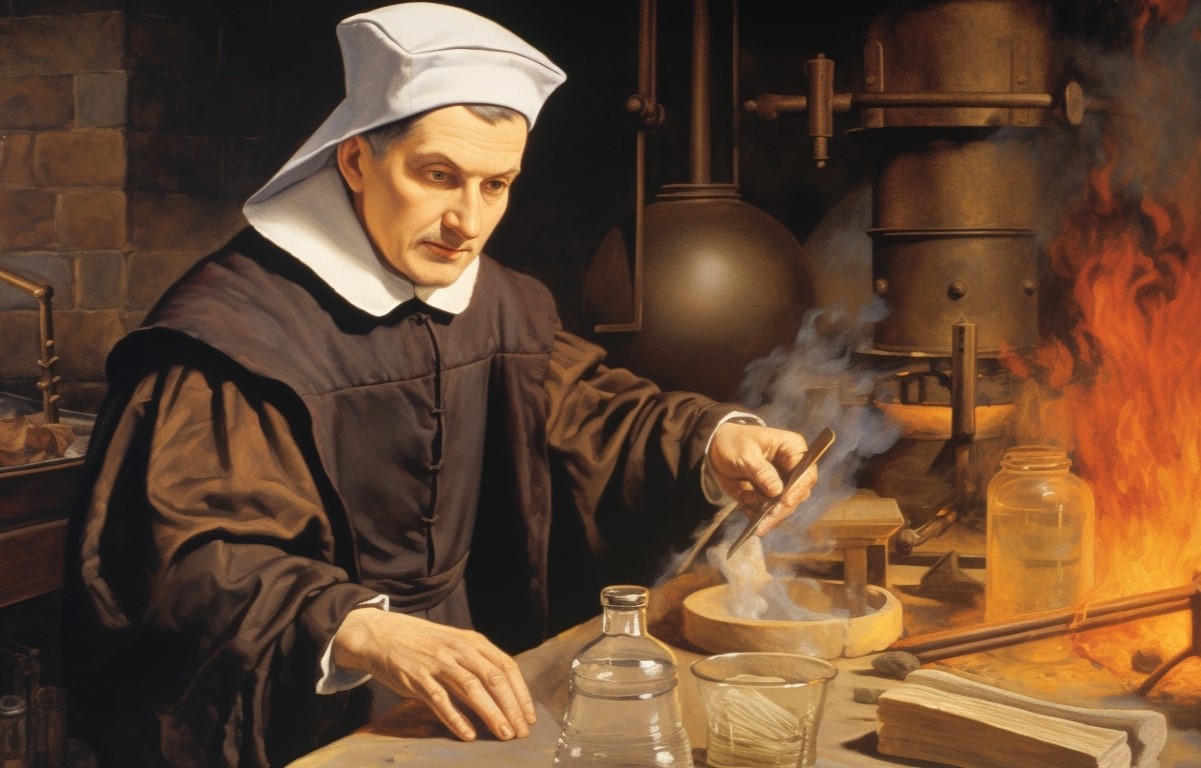
Who was Roger Bacon? Roger Bacon, a 13th-century English philosopher and scientist, is often hailed as one of the earliest advocates for the modern scientific method. Known for his emphasis on empirical evidence, Bacon's work laid the groundwork for future scientific inquiry. He was a Franciscan friar who believed that observation and experimentation were crucial for understanding the natural world. Bacon's contributions span various fields, including optics, alchemy, and linguistics. His most famous work, "Opus Majus," addressed topics ranging from mathematics to moral philosophy. Despite facing opposition from his contemporaries, Bacon's ideas have endured, influencing generations of thinkers. Dive into these 35 intriguing facts about Roger Bacon to learn more about his life, achievements, and lasting impact on science and philosophy.
Key Takeaways:
- Roger Bacon, a medieval philosopher, made groundbreaking contributions to science, philosophy, and invention. His emphasis on empirical methods and forward-thinking ideas influenced future generations of scientists and thinkers.
- Despite facing challenges and controversies, Roger Bacon's legacy as a pioneer of the scientific method and a visionary inventor continues to inspire and shape the history of science and philosophy.
Who Was Roger Bacon?
Roger Bacon, a medieval English philosopher and Franciscan friar, made significant contributions to science and philosophy. Known for his emphasis on empirical methods, Bacon's work laid the groundwork for modern scientific inquiry.
- Roger Bacon was born around 1214 in Ilchester, Somerset, England.
- He studied at Oxford University, where he was influenced by the works of Aristotle.
- Bacon joined the Franciscan Order, dedicating his life to religious and scientific pursuits.
- He was one of the first Europeans to advocate for the use of the scientific method.
- Bacon's nickname was "Doctor Mirabilis," meaning "Wonderful Teacher."
Contributions to Science
Bacon's work in various scientific fields was groundbreaking. His emphasis on experimentation and observation set him apart from many of his contemporaries.
- He made significant advancements in optics, studying the properties of light and vision.
- Bacon wrote about the use of lenses to improve vision, foreshadowing the invention of eyeglasses.
- He conducted experiments with magnifying glasses, understanding their potential to magnify objects.
- Bacon proposed the idea of telescopes and microscopes long before they were invented.
- He studied the refraction of light, explaining how it bends when passing through different mediums.
Philosophy and Theology
Bacon's philosophical and theological ideas were as influential as his scientific work. He sought to reconcile faith with reason, believing that both could coexist harmoniously.
- He was a proponent of natural theology, arguing that the natural world could reveal divine truths.
- Bacon believed that studying nature was a way to understand God's creation.
- He criticized the scholastic method, which relied heavily on tradition and authority rather than observation.
- Bacon emphasized the importance of learning languages to understand original texts, particularly in theology.
- He argued that philosophy and science should serve theology, not contradict it.
Innovations and Inventions
Bacon's inventive mind led him to conceptualize several devices and ideas that were ahead of his time. His work in this area showcased his forward-thinking approach.
- He described a flying machine, envisioning a device that could lift a person into the air.
- Bacon wrote about the possibility of mechanical ships and carriages, powered by engines.
- He speculated on the use of gunpowder for military purposes, understanding its explosive potential.
- Bacon designed a primitive form of the magnifying glass, which he called a "burning glass."
- He suggested the idea of a universal language to facilitate communication among different cultures.
Legacy and Influence
Bacon's legacy extends far beyond his lifetime. His ideas influenced future generations of scientists, philosophers, and theologians.
- His work laid the foundation for the scientific revolution in the 16th and 17th centuries.
- Bacon's emphasis on empirical methods influenced later scientists like Galileo and Newton.
- His writings were preserved and studied by scholars during the Renaissance.
- Bacon's ideas about optics contributed to the development of modern optical instruments.
- He is often credited with being one of the first to propose the concept of scientific experimentation.
Challenges and Controversies
Despite his contributions, Bacon faced numerous challenges and controversies throughout his life. His ideas were often met with resistance from his contemporaries.
- He was imprisoned for a time by the Franciscan Order, accused of spreading controversial ideas.
- Bacon's works were sometimes censored or suppressed due to their radical nature.
- He faced opposition from scholars who adhered to traditional scholastic methods.
- Bacon's emphasis on empirical evidence was seen as a threat to established religious and philosophical doctrines.
- Despite these challenges, he continued to write and conduct experiments, undeterred by opposition.
Final Years and Death
Bacon's later years were marked by continued intellectual activity, even as he faced personal and professional difficulties.
- He spent his final years in a Franciscan monastery, continuing his studies and writing.
- Bacon wrote his most famous work, "Opus Majus," during this period, summarizing his ideas on science and philosophy.
- He also wrote "Opus Minus" and "Opus Tertium," further elaborating on his theories.
- Bacon died around 1292, leaving behind a legacy of innovation and inquiry.
- His work continued to inspire future generations, cementing his place in the history of science and philosophy.
Roger Bacon's Lasting Impact
Roger Bacon's contributions to science, philosophy, and education have left a lasting mark on history. His pioneering work in optics, alchemy, and the scientific method laid the groundwork for future discoveries. Bacon's emphasis on empirical evidence and experimentation challenged the norms of his time, pushing the boundaries of medieval thought.
Despite facing opposition and even imprisonment, Bacon's dedication to knowledge never wavered. His writings, though sometimes controversial, inspired generations of scholars and scientists. Today, Bacon is remembered as a visionary who dared to question established beliefs and seek truth through observation.
His legacy reminds us of the importance of curiosity, critical thinking, and the relentless pursuit of understanding. Roger Bacon's life and work continue to inspire those who seek to expand the horizons of human knowledge.
Frequently Asked Questions
Was this page helpful?
Our commitment to delivering trustworthy and engaging content is at the heart of what we do. Each fact on our site is contributed by real users like you, bringing a wealth of diverse insights and information. To ensure the highest standards of accuracy and reliability, our dedicated editors meticulously review each submission. This process guarantees that the facts we share are not only fascinating but also credible. Trust in our commitment to quality and authenticity as you explore and learn with us.


